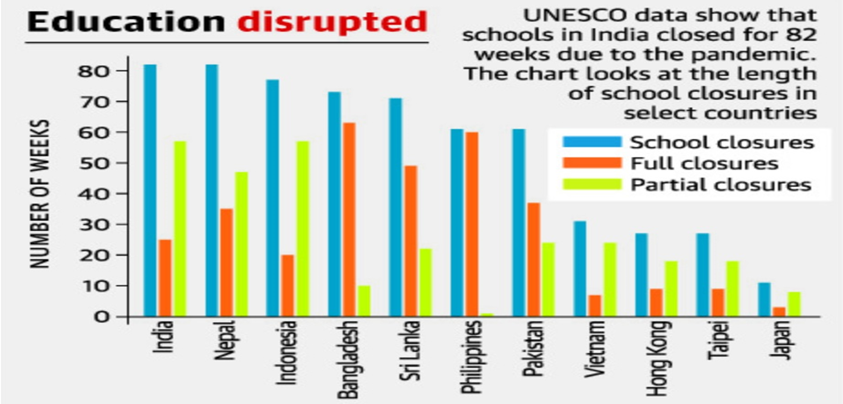In News:
- India would see the highest decline in South Asia due to learning losses for the young.
- This has been highlighted by a new working paper published by the Asian Development Bank (ADB).
What’s in Today’s Article:
- Asian Development Bank
- Asian Development Outlook
- News Summary
Asian Development Bank (ADB)
- ADB (founded in 1966) is an international development finance institution.
- Its mission is to help its developing member countries reduce poverty and improve the quality of life of their people.
- Headquartered in Manila, ADB is owned and financed by its 68 members, of which 49 are from the region and 19 are from other parts of the globe.
- The two largest shareholders of the Asian Development Bank are the United States and Japan.
- ADB is an official United Nations Observer.
Asian Development Outlook (ADO)
- The Asian Development Outlook is a series of annual economic reports on the developing member countries (DMCs) of the Asian Development Bank.
- The ADO provides a comprehensive analysis of macroeconomic and development issues for the DMCs of ADB.
- It analyzes economic and development issues in developing countries in Asia.
- This includes forecasting the inflation and GDP growth rates of countries throughout the region, including China and India.
News Summary
- The Asian Development Bank (ADB) has published a working paper on ‘Potential Economic Impact of COVID-19 related School Closures’.
Key Highlights of the report

- GDP of India would see the highest decline in South Asia
- As per the paper, the gross domestic product (GDP) of India would see the highest decline in South Asia due to learning losses for the young.
- India is among the countries with the longest school closures during the COVID-19 pandemic.
- GDP decline: in numbers
- Starting with a $10.5 billion dent in 2023, the country’s economy could take a nearly $99 billion hit by 2030.
- This translates into a 3.19% reduction in GDP from the baseline growth trends.
- India’s contribution in global GDP decline
- India may account for over 10% of the global GDP decline of $943 billion estimated by the ADB on account of earning losses in 2030.
- Jobs for skilled labour is expected to decline by 1%, and unskilled labour by 2% that year.
- Rural areas are worst hit
- India has notable enrolment in secondary education and among students in rural areas.
- Pandemic-induced school closures have also been more extensive there and students on rural areas lack access to stable Internet connection needed to study online.
- Learning and earning losses will be significant
- Learning and earning losses are significant because a notable portion of the impacted population will migrate to the unskilled labour force.
- A large part of India’s work force is constituted by unskilled labour — 408.4 million as per the ADB paper’s estimates, compared to 72.65 million skilled workers.
- Number of students in India
- India has the highest number of children enrolled in primary and secondary education among the Asian economies covered in the paper, at 255.74 million.
- The number of students in tertiary education were second only to China at 36.39 million.
- Most immediate challenge
- As per the paper, the most immediate challenge is to help students recover “lost opportunities” by conducting assessments among impacted children.
- Recommendations
- The paper mooted greater investments in education and skills with a focus on narrowing the digital divide.
- It is important to identify the learning gap and specific learning needs of individuals.
- Effective learning programs should be devised to offer appropriate support such as tutoring or special classes and help them to bridge the learning gap.
- It is important to keep school-age children in education as much as possible by providing financial support and incentives, while giving additional support for skills training to youth already out of school.










